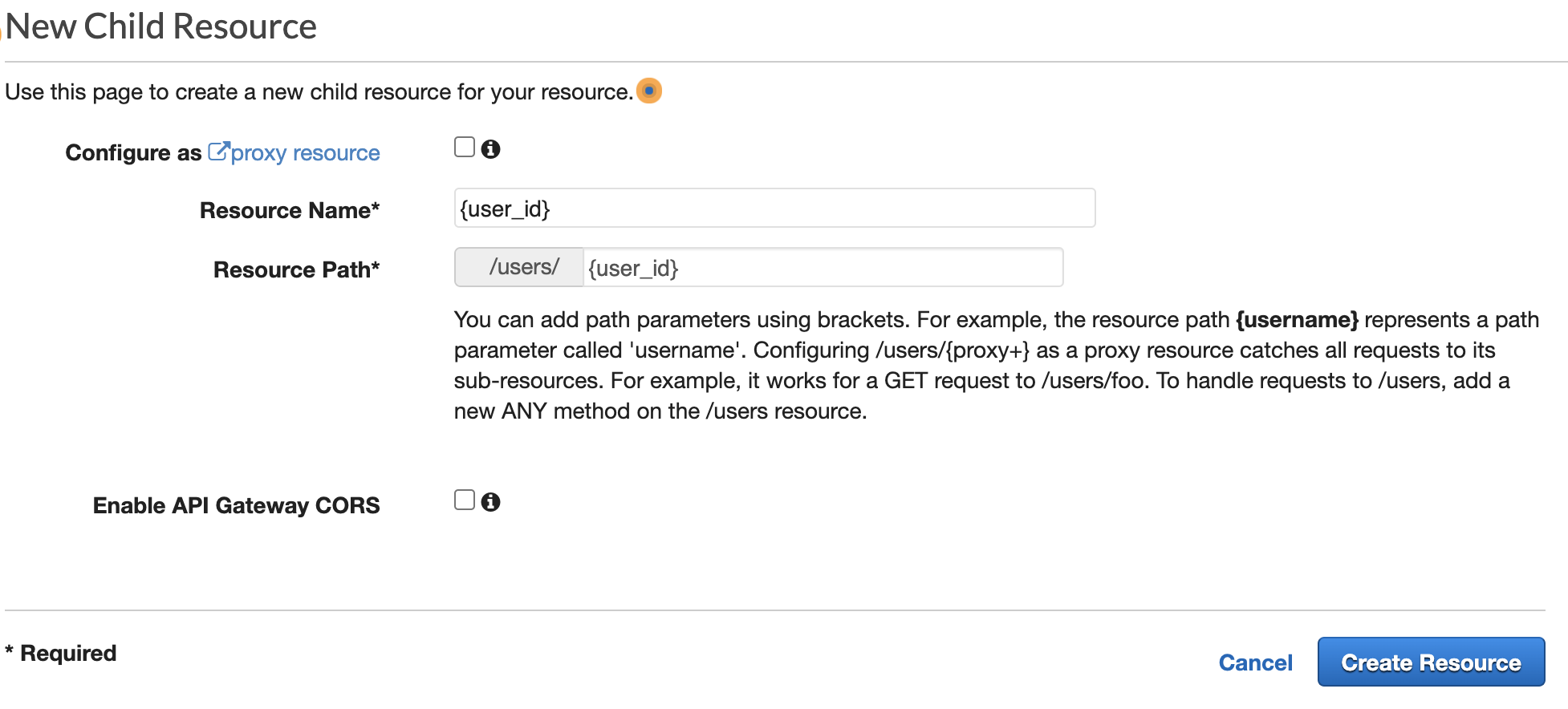pylambdarest is a lightweight opinionated framework for building REST API using AWS Lambda and API Gateway.
Why another framework ?
When using API Gateway and python Lambda functions, the most common pattern is to have a unique Lambda function triggered by a proxy API Gateway resource. The Lambda then uses a framework like Flask to do all the routing. In an API Gateway + Lambda context, I feel like the routing should be handled by API Gateway itself, then forwarding the request to specific Lambda functions for each resource or endpoint.
- No routing. Yes, this is a feature. Routing should be handled by API Gateway.
- API Gateway event parsing (including request body and path parameters).
- Cleaner syntax.
- Optional body schema and query parameters validation.
Install the package from PyPI using pip:
$ pip install pylambdarest
pylambdarest should also be included in the deployment package of your Lambda functions.
pylambdarest provides a @route decorator to parse the API Gateway event into a Request object available in the handler function as an argument. It also formats the handler's output to the expected Lambda + API Gateway format seamlessly.
Turning this:
import json
def handler(event, context):
body = json.loads(event["body"])
query_params = event["queryStringParameters"]
path_params = event["pathParameters"]
return {
"statusCode": 200,
"body": json.dumps({
"message": f"Hello from AWS Lambda {body['name']}!!"
})
}Into this:
from pylambdarest import route
@route()
def handler(request):
body = request.json
query_params = request.query_params
path_params = request.path_params
return 200, {"message": f"Hello from AWS Lambda {body['name']}!!"}You can still access the original event and context arguments from the handler:
from pylambdarest import route
@route()
def handler(request, event, context):
print(event)
body = request.json
return 200, {"message": f"Hello from AWS Lambda {body['name']}!!"}Path parameters defined in API Gateway can also be accessed directly as function argument:
from pylambdarest import route
@route()
def get_user(user_id):
print(user_id)
# get user from db
user = {"id": user_id, "name": "John Doe"}
return 200, userpylambdarest optionally provides schema validation using jsonschema:
from pylambdarest import route
user_schema = {
"type": "object",
"properties": {
"name": {"type": "string"}
},
"required": ["name"],
"additionalProperties": False
}
@route(body_schema=user_schema)
def create_user(request):
# If the request's body does not
# satisfy the user_schema,
# a 400 will be returned
# Create user here
return 201
query_params_schema = {
"type": "object",
"properties": {
# Only string types are allowed for query parameters.
# Types casting should be done in the handler.
"page": {"type": "string"}
},
"additionalProperties": False
}
@route(query_params_schema=query_params_schema)
def get_users(request):
page = int(request.query_params.get("page", 1))
# request users in db
users = [
{"userId": i}
for i in range((page - 1) * 50, page * 50)
]
return 200, usersYou can look at the sample for a minimal pylambdarest API.
In this sample, we use the serverless framework to declare the API Gateway -> Lambda routing
The packaging of the Lambda functions is done using the serverless-python-requirements plugin.



